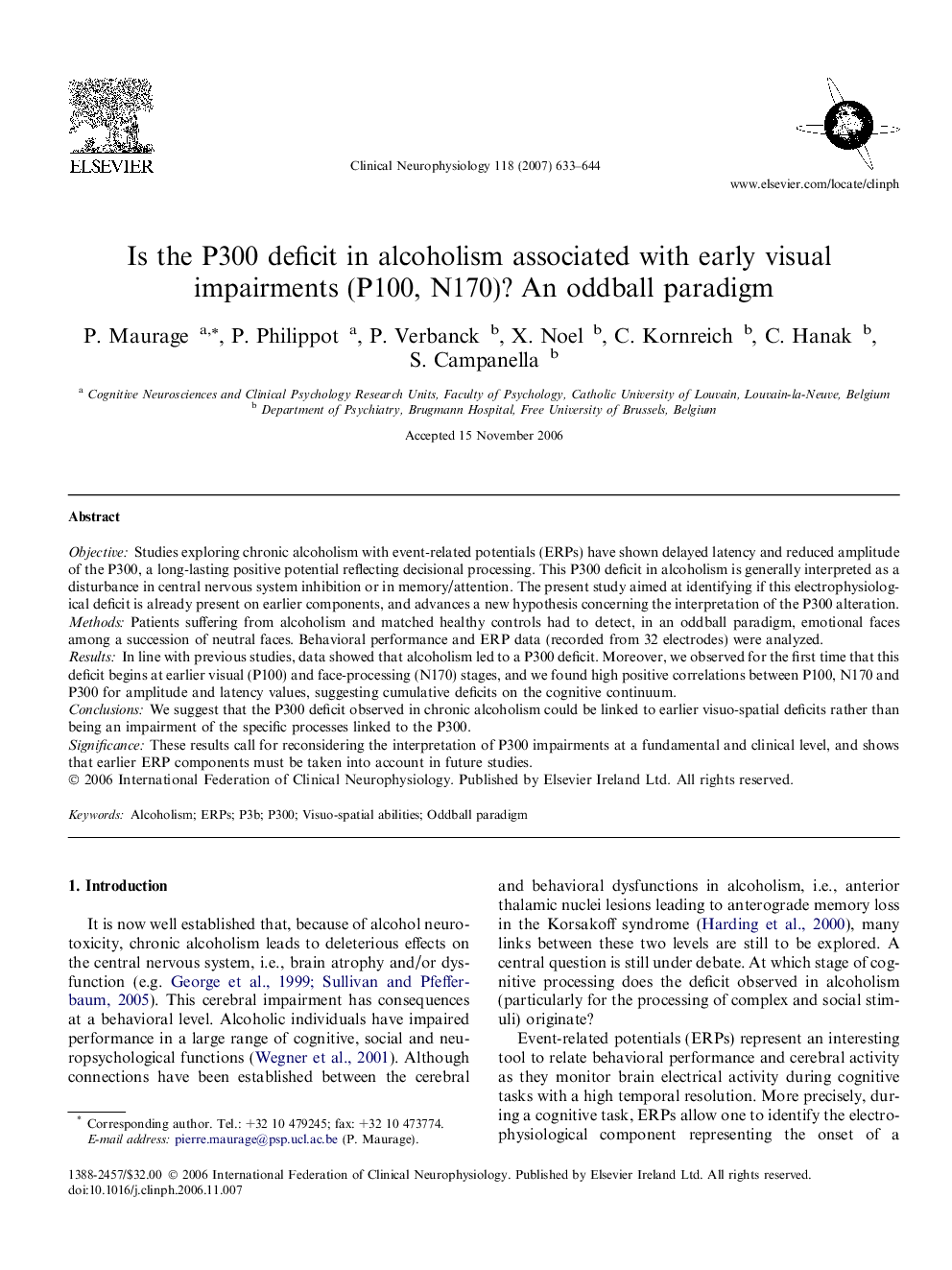| Article ID | Journal | Published Year | Pages | File Type |
|---|---|---|---|---|
| 3047850 | Clinical Neurophysiology | 2007 | 12 Pages |
ObjectiveStudies exploring chronic alcoholism with event-related potentials (ERPs) have shown delayed latency and reduced amplitude of the P300, a long-lasting positive potential reflecting decisional processing. This P300 deficit in alcoholism is generally interpreted as a disturbance in central nervous system inhibition or in memory/attention. The present study aimed at identifying if this electrophysiological deficit is already present on earlier components, and advances a new hypothesis concerning the interpretation of the P300 alteration.MethodsPatients suffering from alcoholism and matched healthy controls had to detect, in an oddball paradigm, emotional faces among a succession of neutral faces. Behavioral performance and ERP data (recorded from 32 electrodes) were analyzed.ResultsIn line with previous studies, data showed that alcoholism led to a P300 deficit. Moreover, we observed for the first time that this deficit begins at earlier visual (P100) and face-processing (N170) stages, and we found high positive correlations between P100, N170 and P300 for amplitude and latency values, suggesting cumulative deficits on the cognitive continuum.ConclusionsWe suggest that the P300 deficit observed in chronic alcoholism could be linked to earlier visuo-spatial deficits rather than being an impairment of the specific processes linked to the P300.SignificanceThese results call for reconsidering the interpretation of P300 impairments at a fundamental and clinical level, and shows that earlier ERP components must be taken into account in future studies.
